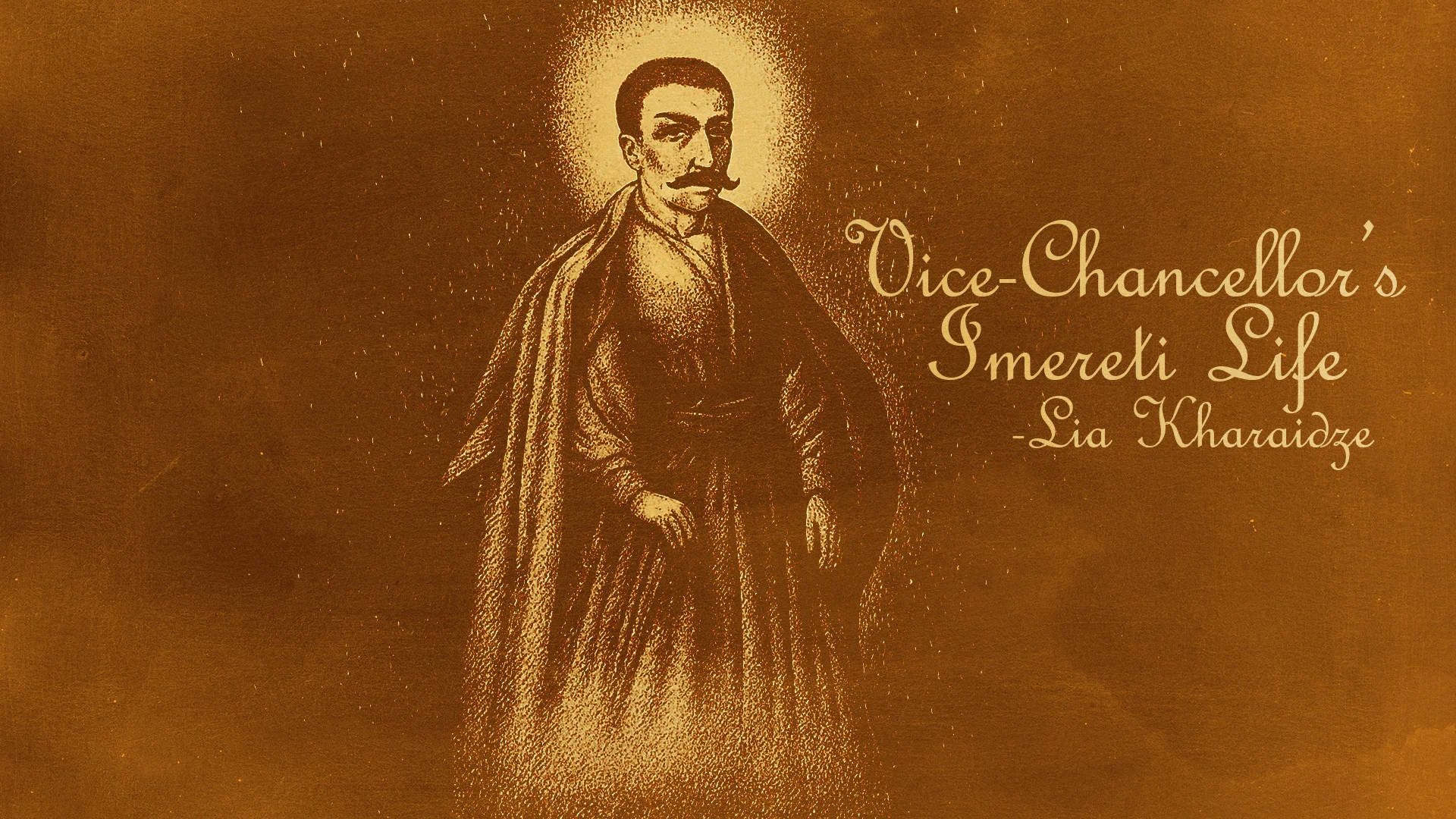Author: Lia Kharaidze
There is a saying: “When the cart turns over, the path will appear.” However, even after more than two centuries, the turbulent events of the 18th and 19th centuries still leave people wondering: what could have been the best way to save the country? Georgia, a small and divided land caught between three empires, found itself in the middle of a difficult political storm. This struggle had its heroes—and its anti-heroes.
One of the true heroes of this period was Solomon Lionidze.
He is remembered as a deeply educated and loyal statesman, devoted to his homeland. In the words of historian M. Dumbadze, “…a diplomat and a universally recognized wise man. Solomon rose to prominence not only as a man of great talent, but also as a brave warrior who served his country.”
Solomon’s father, Andria, worked as a tutor at the court of King Erekle II. This gave young Solomon the chance to receive an excellent education at the royal court, along with the princes of the royal family. The second half of the 18th century was a crucial time for Georgian culture, and Solomon became fluent in Eastern languages as well as Russian. His diplomatic skills were so impressive that even his enemies respected him. He had deep knowledge of Greek and Roman history, philosophy, and literature.
Solomon believed that Georgia’s biggest problem was its internal divisions and constant fighting among local rulers. The 19th-century historian Platon Ioseliani praised Solomon’s efforts to unite the Georgian kings and chieftains and create a centralized state. He wrote:
“Solomon Leonidze, together with the King of Imereti and the chieftains Grigol Dadiani and Simeon Gurieli, made many attempts to form a strong Georgian nation by building internal unity and rejecting foreign alliances.”
Thanks to Solomon’s determination, the “Treatise of the Iberian Kings and Chieftains” was created.
Platon Ioseliani described Solomon as a “Didi Mamulishvili”—a great citizen or statesman—for his tireless efforts to unite the country.
We will not examine the full contents of the treaty here, but an excerpt from Article Four shows its spirit:
“If the enemy rises against you… I will be ready to help you in word and deed, to the best of my ability.”
Ioseliani added a warning:
“A nation protected by foreigners will always be humbled.” (from Life of King George XIII)
The treaty stands not only as a political achievement but also as an example of fine diplomatic language and thought.
Solomon Lionidze is also known as a judge in the court of King Erekle, and poet Nikoloz Baratashvili even made him the hero of his famous poem “The Fate of Kartli.”
However, his later life in Imereti is less known. After the conflict between Queen Darejan and King George XIII, Solomon was captured. Thanks to the help of David Batonishvili and his earlier service, he was released and escaped to the Kingdom of Imereti.
There, King Solomon II—grandson of Erekle II—welcomed him warmly. The two had known each other since childhood at the royal court in Telavi. Surrounded by enemies, the king saw Solomon’s arrival as a true blessing.
He gave him estates in Katskhi and Barakoni. The Katskhi estate included not only land but also a palace and the court church of the old Baghvashi noble family (later taken over by the Abashidzes).
However, Solomon could not enjoy a peaceful life in Katskhi. How could he rest while the fate of his country was once again at risk?
Together with King Solomon II, he prepared the terms of a treaty and in August 1803 sent representatives to St. Petersburg. Although Leonidze was respected as a skilled diplomat, he was received coldly. The reason was that many Georgian nobles had already declared loyalty to the Russian Empire, which suited Russia’s plans. The effort to reach an agreement that would protect Imereti’s independence and traditions failed.
After that, King Solomon and his small group of loyal supporters—including Solomon Leonidze—began their final struggle.
Following Russia’s complete annexation of Eastern Georgia, King Solomon II tried to use Napoleon’s war with Russia to Georgia’s advantage. He took refuge in Trebizond and sent a message—through Solomon’s son, Ioane—to the Ottoman Sultan and then to Napoleon. But the Georgians had no luck. Napoleon was defeated.
Although the Ottomans welcomed Solomon, and the Pasha of Trebizond was even of Georgian origin, it soon became clear that their support was based on their own political interests in the Caucasus.
By this time, Solomon Lionidze was very old. He remained in Akhaltsikhe, where he was sheltered by a Catholic monk, Father Nikola Baindurashvili. (There were no Orthodox churches in the region at that time.) In 1810, a plague broke out in Akhaltsikhe, taking many lives—including Solomon’s. He was buried in the courtyard of the local Catholic church.
Historian Rezo Andghuladze later wrote with sadness that the son of an Orthodox priest ended up buried in a Catholic church, his grave tended by Catholic monks.
Although Solomon never returned to live in Katskhi, his son Ioane did. By that time, Georgia had been fully absorbed into the Russian Empire. As the son of a rebel and a loyal follower of King Solomon, Ioane was not treated with honor. He settled quietly in Katskhi, and his descendants lived there for generations.
Later, during Soviet times, Solomon’s palace was turned into a school, and his descendants moved to Zestaponi. The Church of the Nativity of the Savior in Katskhi, once part of the estate, became the family tomb, shared with the noble Baghvashis and Abashidzes.
In the end, we are reminded of the words of Niko Lortkipanidze:
“Great people are lost without heirs.”
